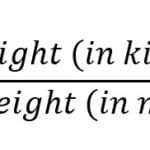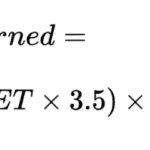Easy Macro calculator

Common Questions about Macros –
Based on Google’s popular search queries, here are answers to frequently asked questions about daily nutrient requirements:
Eat Smarter, Not Less! We Find Your Perfect Macro Ratio & Turn It Into Delicious Meals!
Finding the perfect balance of carbs, protein, and fats shouldn’t be complicated. Our Macro Calculator helps you unlock a diet tailored to your goals—whether it’s weight loss, muscle gain, or just feeling your best. Sync your results with Recipians for personalized meal plans that match your macros effortlessly!
INTRODUCTION TO TRACKING MACROS
Understanding Macronutrients

Carbohydrates: The Body’s Primary Energy Source
- Carbohydrates are the body’s preferred source of energy, fueling brain function, physical activity, and metabolism.
- Types of Carbs:
- Simple Carbs: Quick energy sources found in fruits, dairy, and processed foods.
- Complex Carbs: Found in whole grains, vegetables, and legumes, providing sustained energy and fiber.
- Best Sources: Brown rice, oats, quinoa, sweet potatoes, whole wheat bread, fruits, and vegetables.
- Daily Intake: 45-65% of total daily calories, depending on activity level.

Proteins: The Building Blocks of the Body
- Role: Essential for muscle repair, immune function, and hormone production.
- Types of Proteins:
- Complete Proteins: Contain all essential amino acids (e.g., meat, eggs, fish, dairy, soy).
- Incomplete Proteins: Lack some essential amino acids (e.g., legumes, nuts, seeds).
- Best Sources: Chicken, fish, tofu, beans, eggs, Greek yogurt, cottage cheese.
- Daily Intake: 15-35% of total daily calories, based on fitness goals.

Fats: Essential for Brain Function and Hormonal Balance
- Role: Supports brain health, hormone production, and nutrient absorption.
- Types of Fats:
- Healthy Fats: Monounsaturated and polyunsaturated fats (e.g., avocados, nuts, olive oil, fatty fish).
- Unhealthy Fats: Trans fats and excessive saturated fats (e.g., fried foods, processed snacks).
- Best Sources: Nuts, seeds, avocados, olive oil, fatty fish, dark chocolate.
- Daily Intake: 20-35% of total daily calories.

Table: Recommended Macro Ranges Based on Goals
| Goal | Carbs (%) | Protein (%) | Fats (%) |
|---|---|---|---|
| Weight Loss | 40-50 | 25-35 | 20-30 |
| Muscle Gain | 45-55 | 30-40 | 15-25 |
| Maintenance | 50-60 | 20-30 | 20-30 |
| Keto Diet | 5-10 | 20-25 | 65-75 |
Customizing Macros for Different Diets & Lifestyles
How to Calculate Your Macros?
Step 1: Determine Your Total Daily Energy Expenditure (TDEE)
TDEE is the total number of calories your body burns in a day, including all activity. It is calculated based on Basal Metabolic Rate (BMR) and activity level. (Also see our Accurate BMR Calculator).
Step 2: Choose Your Goal & Macro Split
- For weight loss: Reduce caloric intake by 10-20% while ensuring adequate protein.
- For muscle gain: Increase caloric intake by 10-20% with more protein and carbs.
- For maintenance: Match caloric intake with TDEE.
Step 3: Convert Percentages into Grams
Use the following formula:
- 1g Carbohydrate = 4 kcal
- 1g Protein = 4 kcal
- 1g Fat = 9 kcal
Example Calculation:
For a person consuming 2,000 calories/day with a weight loss goal (40% carbs, 30% protein, 30% fats):
- Carbs: (2,000 × 40%) ÷ 4 = 200g
- Protein: (2,000 × 30%) ÷ 4 = 150g
- Fats: (2,000 × 30%) ÷ 9 = 67g
Customizing Macros for Different Diets & Lifestyles
Can I Calculate my macros for weight loss free?
Short: Yes! Just use our calculator above and select “weight loss” in Goal option.
Details:
Step 1: Determine Your Total Daily Energy Expenditure (TDEE)
TDEE is the total number of calories your body burns in a day, including all activity. It is calculated based on Basal Metabolic Rate (BMR) and activity level. (Also see our Accurate BMR Calculator)
Step 2: Choose Your Goal & Macro Split
- For weight loss: Reduce caloric intake by 10-20% while ensuring adequate protein.
- For muscle gain: Increase caloric intake by 10-20% with more protein and carbs.
- For maintenance: Match caloric intake with TDEE.
Step 3: Convert Percentages into Grams
Use the following formula:
- 1g Carbohydrate = 4 kcal
- 1g Protein = 4 kcal
- 1g Fat = 9 kcal
Example Calculation:
For a person consuming 2,000 calories/day with a weight loss goal (40% carbs, 30% protein, 30% fats):
- Carbs: (2,000 × 40%) ÷ 4 = 200g
- Protein: (2,000 × 30%) ÷ 4 = 150g
- Fats: (2,000 × 30%) ÷ 9 = 67g
TRUTH ABOUT MACRONUTRIENTS
Common Myths About Macros
Myth 1: “Eating Fat Makes You Fat”
Healthy fats are crucial for hormone balance and should not be avoided.
Myth 2: “Carbs Are Bad for Weight Loss”
Whole, complex carbs provide fiber and long-lasting energy.
Myth 3: “More Protein Means More Muscle”
Protein intake must be balanced with resistance training for optimal muscle gain.
WHAT IF YOU DON’T TAKE ENOUGH MACRO-NUTRIENT?
Macronutrient Deficiencies: Risks and Prevention
Common Deficiencies & Their Health Risks
| Deficient Macro | Health Risks |
| Carbohydrates | Fatigue, brain fog, digestive issues |
| Proteins | Muscle loss, weakened immune system, hair thinning |
| Fats | Hormonal imbalances, dry skin, cognitive decline |
How to Avoid Macronutrient Deficiencies
- Eat a well-balanced diet with whole foods.
- Ensure a mix of plant and animal-based proteins.
- Include healthy fats from nuts, seeds, and oils.
- Monitor fiber intake for digestive health.
DID YOU FORGET ABOUT MICROS? ARE THEY IMPORTANT TOO?
Difference Between Macro & Micronutrients?
Macronutrients vs. Micronutrients: Key Differences
| Feature | Macronutrients | Micronutrients |
| Function | Provide energy | Support metabolism, immunity, and growth |
| Types | Carbs, Proteins, Fats | Vitamins, Minerals |
| Daily Requirement | Needed in large amounts | Needed in small amounts |
Why Both Are Important?
While macros give energy, micronutrients ensure optimal body functions, preventing deficiencies like anemia, osteoporosis, and weak immunity.
SUMMARY
Conclusion
Balancing macros is the key to sustainable health, fitness, and performance. Instead of focusing on calorie restriction alone, understanding and tracking macros can help you make healthier food choices tailored to your goals. Whether you’re trying to lose weight, gain muscle, or maintain your health, the right macro balance will fuel your body efficiently.
With Recipians, you don’t have to worry about complicated calculations—our app helps you discover macro-friendly meals effortlessly. Let your diet work for you, not against you. Start tracking your macros today and see the difference!





